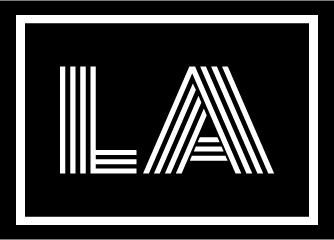Initially, cryptocurrency exchanges were created in the image and likeness of stock exchanges. All early digital asset trading platforms were centralized. Later, a new generation of decentralized exchanges appeared.
Decentralized exchanges (DEX) belong to the field of decentralized finance (DeFi) and operate on the basis of blockchain networks. Such platforms are either managed by developers and the community (semi-automated) or based on smart contracts (automated management). They do not have a centralized governing body.
The functionality of the decentralized exchange is designed to search for matching requests to buy and sell cryptocurrency. Some DEX already have staking enabled.
The first decentralized platforms were deployed on the Ethereum blockchain, the most popular network in the DeFi space. Later, similar platforms began to be deployed on the basis of other blockchains. Ethereum’s low bandwidth and high fees have contributed to the rise in popularity of the platforms on the Binance Smart Chain network.
Exchanges that operate on the Ethereum network support the exchange of ETH and ERC-20 tokens. Accordingly, BSC-based platforms support the BEP-20 standard. That is, exchange BTC to XMR for DEX is still technically impossible.
Differences Between Decentralized Exchanges And Centralized Exchanges
A fundamental feature of all CEX is the presence of leadership. That is what determines everything else. The management is responsible for the confidential data and funds of users, stores the history of trading, coordinates and controls the operation of the platform, and makes decisions on the further development of the project.
All platforms created for trading traditional assets and early crypto exchanges are centralized. Functionally, they are getting closer and closer. Among the most famous CEX are Binance, Huobi, Kraken.
To trade on the stock exchange, you need to open an account with a broker. To access the trading terminal of the crypto-exchange, you need to register and pass the KYC check.
It is no longer possible to trade anonymously on many centralized platforms. The further, the fewer platforms remain where KYC is not required or not required at all. However, on sites where verification is optional, not all the tools or features of the platform are available to anonymous clients. Most often, the restrictions relate to crypto-fiat operations and the amount of withdrawal.
Decentralized exchanges are managed automatically or semi-automatically. Registration for trading on the platform is not required. That is, the platform does not receive any personal user data, just like the LetsExchange quick exchange service. Instead of registering, all you need to do is connect your DeFi-compatible wallet to the platform.
On a decentralized platform, users trade directly with each other ((P2P). There are no intermediaries between them, respectively, only the blockchain commission is charged for each transaction. Theoretically, it should be lower than on centralized platforms, in practice it depends on the workload of the blockchain and sometimes exceeds the fees on centralized platforms.
Advantages And Disadvantages Of Decentralized Exchanges
The DEX segment is still very young and is just starting to develop. The absence of a centralized governing body and the anonymity of users are fully consistent with the fundamental principles of the crypto world. But still, the ideal is unattainable, and decentralized sites also have weaknesses.
Let’s start with the benefits:
- Registration and KYC is not required.
- Decentralized platforms do not store user funds, so hacker attacks or platform crashes do not affect users’ finances in any way.
- Working on the basis of a distributed ledger eliminates the possibility of hacking a crypto exchange, and the lack of centralized storage makes the attack meaningless.
The main disadvantages of DEX:
- The functionality of decentralized sites is very different from the classic one and inferior to it. Margin trading on the DEX is not supported, and there is no order system in most cases.
- Low liquidity. While decentralized sites cannot boast a large number of active users, their liquidity pools are smaller than those on the CEX and the likelihood of slippage is higher.
- Since there is no manual as such, there is no technical support service either.
People use the maximum possible freedom of action in different ways. Therefore, the risk of buying a frankly fraudulent token on decentralized exchanges is higher compared to the CEX.

